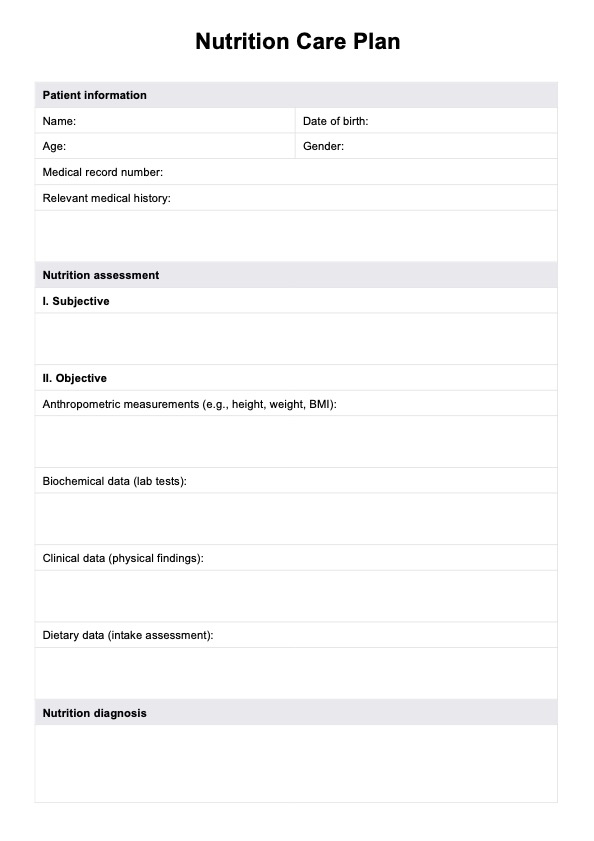An effective Nutrition Care Plan is precisely tailored to the individual's specific health needs and dietary requirements, ensuring comprehensive coverage of all nutritional aspects. It relies on accurate and thorough assessments, including client history, laboratory tests, and a detailed examination of dietary habits. Consider checking out Nutrition Care Plan examples to get an idea of how they're crafted.

Nutrition Care Plan
Use Carepatron's free Nutrition Care Plan PDF and provide the right nutritional needs of clients in healthcare settings.
Nutrition Care Plan Template
Commonly asked questions
The Nutrition Care Plan process involves a systematic approach that includes assessing the patient's nutritional status, diagnosing nutrition-related health issues, planning and implementing interventions, and monitoring and evaluating progress over time. When planning one, consider also diet restrictions and patient allergies. This ensures that all aspects of patient care are addressed, leading to more effective management of dietary needs.
Implementations of an NCP typically involve creating a detailed action plan that includes dietary adjustments, education, and support systems tailored to the patient's conditions, such as managing diabetes or heart disease. It also requires ongoing collaboration with the interdisciplinary healthcare team to ensure that interventions are appropriate and effective in achieving desired health outcomes and providing optimal care.
EHR and practice management software
Get started for free
*No credit card required
Free
$0/usd
Unlimited clients
Telehealth
1GB of storage
Client portal text
Automated billing and online payments











